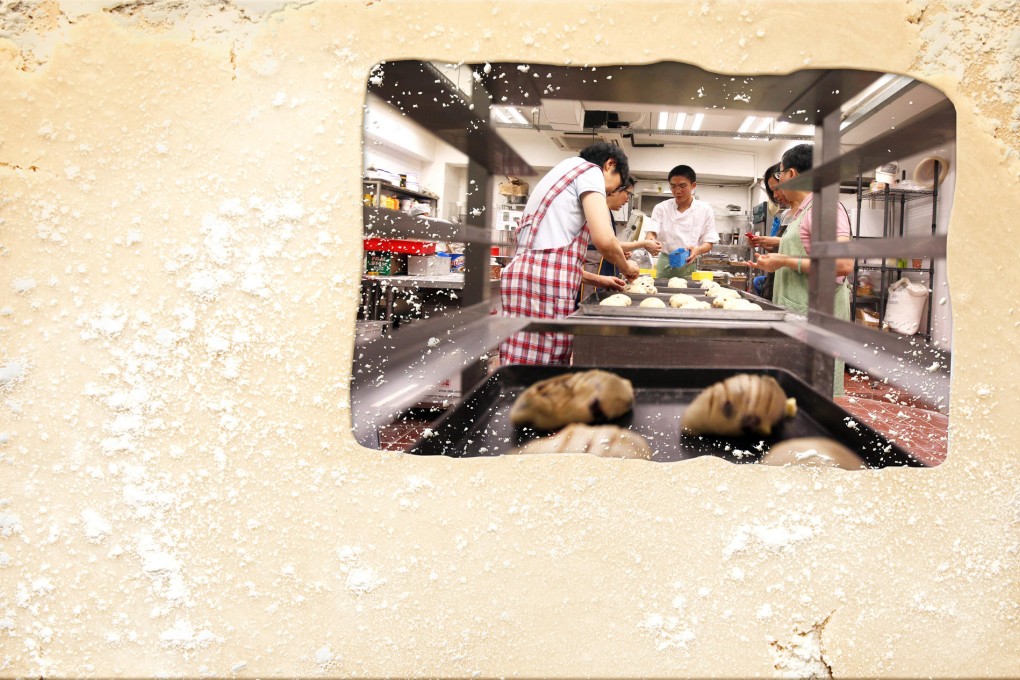Bakery classes spread the love of bread
Artisans are holding public classes to pass on their knowledge and love of baking

coming from Levain's bakery in Cheung Sha Wan as six students slap chunks of dough against the table before letting owner Li Kwok-cheung check it for stretchiness and elasticity.
Li uses machines to knead the dough for products sold at Levain on Aberdeen Street in Central. But when it comes to making good bread, Li says beginners should learn from scratch and gain an understanding of the science behind it.
I want this place to be communal, where people learn together around a big wooden table
"Learning how to knead dough gets you familiar with the texture and touch under different conditions. It's something you have to know even when you use machines," says the self-taught baker.
"Beginners usually start with using dry yeast, which is easy to control for producing consistent products. But after a while it won't be challenging. That's when people turn to the European-style sourdough bread I specialise in.

Baking and pastry-making classes are nothing new. But the love of good food, dissatisfaction with the quality of some purchased goods, and the fact that more artisan bakeries and pastries shops have opened has increased demand for these classes.